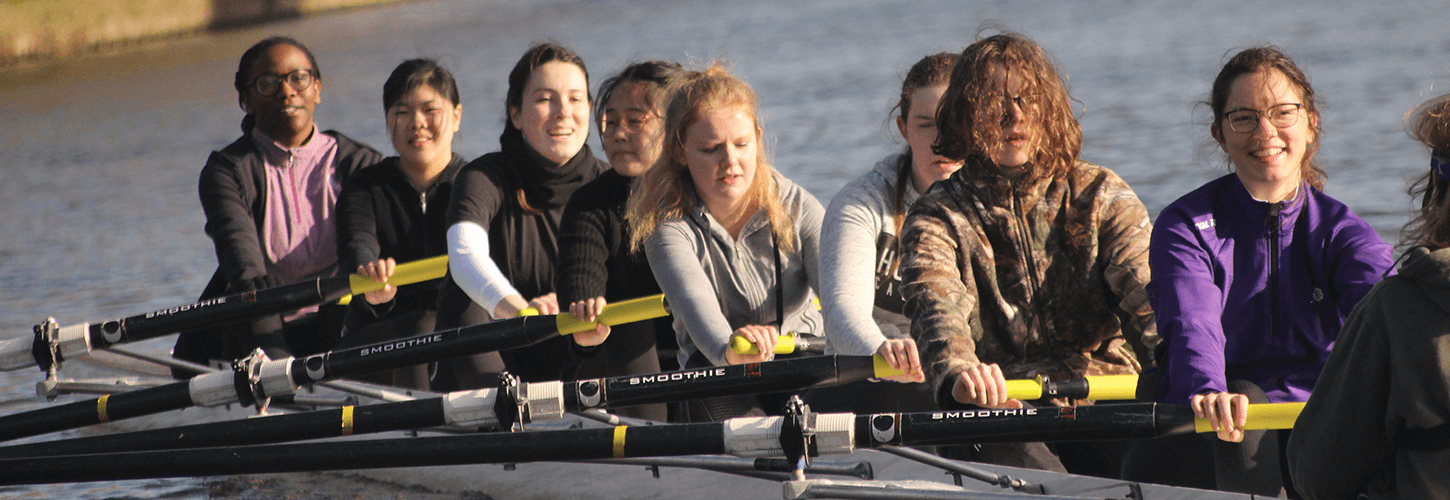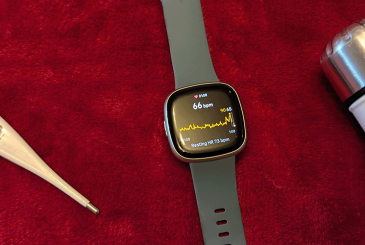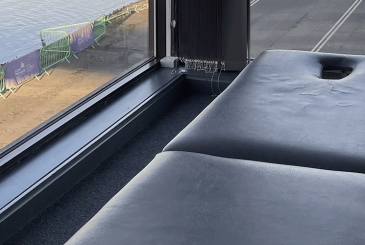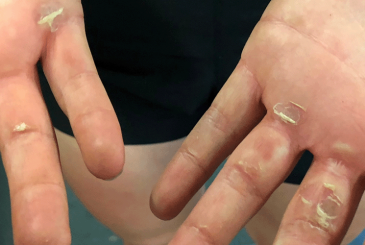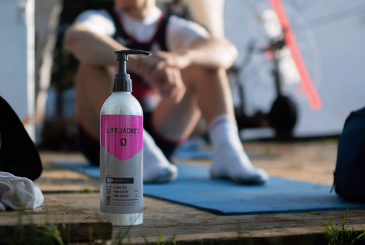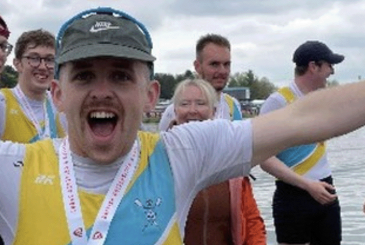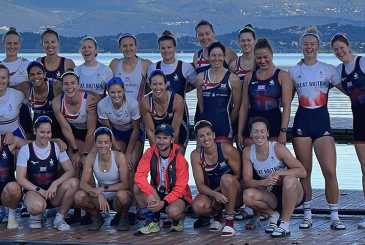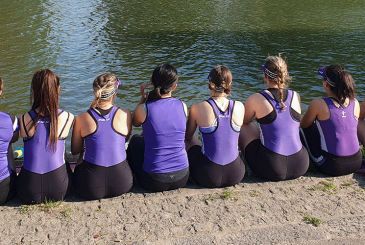Rose Sargent, Vice-Captain of her college boat club, discusses her experiences of rowing as a non-visibly disabled student
In my second year of university, I learnt to row.
I’d got off to a rocky start with my course, and although I had managed to completed my first year, I had to take a year out when I should have begun my second year in October 2020.
I was diagnosed with ADHD during this time, adding to an ever-growing list of medical issues such as anxiety and chronic fatigue syndrome (CFS) – all things I’d had since I was much younger.
The year out proved helpful, and I returned to university to start my ‘second’ second year. But although I was ready to get on with my studies, I was more than a little worried about making friends. I didn’t know my old year group well, and my new year group had known each other for a year already. I turned to my college societies to try and bridge the gap, found rowing, and haven’t looked back since.
Rowing for community
`When I started rowing, I saw it simply as a vehicle to make friends. Our college had a rowing club with people I knew from my first year, with whom I was then living, so I thought it would be a great way to bond with them. I was right about this, but rowing offered me so much more.
“It felt like I’d found something I’d been missing my whole life”
From the moment I sat down in a boat, it felt like I’d found something I’d been missing my whole life. I loved the feeling of the water and being out in nature. There was so much to look at and take in, and so much to learn. I picked up coxing alongside rowing, which helped me progress quickly as a novice (and gave me an excuse to have my eyes outside of the boat).
More importantly, I made a whole new group of friends. Our boat – the ‘Jolly Roger’ – was the oldest and creakiest in our club, but it’s forever my favourite boat. We did fancy dress sprint races and time trials on the Cam. Our crowning achievement, though was racing at BUCS as novices in the early summer. The women whom I learnt to row with, and the men whom I coxed will always have a special place in my heart.
Rowing to manage my disability
The advice given to most people like me to manage CFS is to adopt a regular routine, sleep enough and at the same time every night, get a good amount of exercise in: all things we should all be doing anyway. This can be very difficult to accomplish if you have ADHD though. I struggle to impose a routine on myself, make impulsive choices, and I can’t always turn my brain off to get to sleep.
“There’s a calm, mindful note to the repetitiveness of rowing”
Rowing forced a routine on me. When you have eight people depending on you, there’s a pressure to show up unlike no other. And when you can combine showing up with an early morning, a bit of exercise, and being outside, you tick off lots of things that you’re supposed to do to manage your disability straight away. There’s a calm, mindful note to the repetitiveness of rowing (when you’re not doing pieces), and a joy in sharing it with others. Bonding with my crew alleviated my anxiety about making friends and gave me something to talk to my flatmates about in the kitchen. It really held my life together in my first term back.
I’d never really enjoyed sport (especially team sports) before, but I trained harder than ever over Christmas, as we were moving into senior squads. Unfortunately, by the Easter holidays, I was so burned out from university work that I couldn’t train at all – it was a hard uphill climb back to fitness. These things meant I couldn’t move into our first boat until my second year of rowing. Naturally, I was incredibly disappointed – I wanted to get better, faster – but luckily, almost our entire novice crew moved into our second boat, and I subbed in to the first boat whenever they needed me. This year, as part of our first boat, we ‘bladed’ in bumps and have won several races since January.
The best parts of rowing
Most importantly, I took up Vice Captaincy of the boat club at the end of my first rowing year, which has been the most rewarding experience of all. Being able to teach freshers the sport that I love and watch them reap the same benefits that I did has been a joy. It gave me confidence in myself, as an athlete and a coach, but also as a leader, which has been so important in other areas of my life.
“Rowing saved my university experience”
All in all, rowing saved my university experience. I would recommend it for anyone managing similar conditions to me. To be able to tie friendship, health and helping others into one activity had never been possible for me before, and I am more than grateful that I have it now.
Rose has also written for British Rowing Plus on Rowing and neurodivergence.
Photo: MvRN Photography


